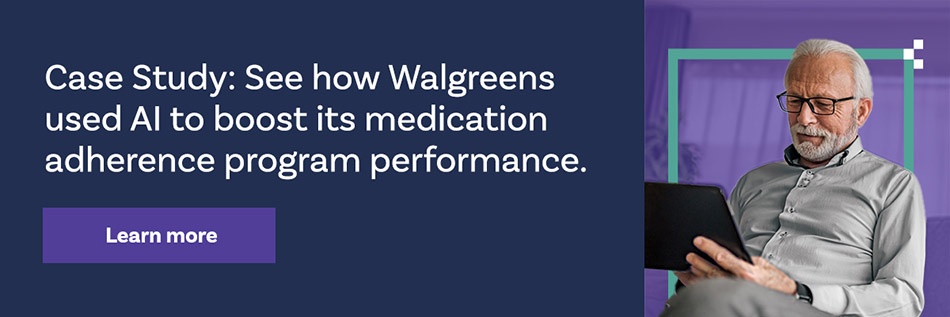We talk a lot about the importance of medication adherence on our blog—but being truly adherent is not only about taking medications as prescribed but also about taking the right dose, in the right way, and at the right time.
Providers often prescribe medications that need to be taken at a specific time each day. Why does the timing matter? Simply put, some drugs are time-sensitive for a variety of reasons, and taking them in a timely manner each day is essential for ensuring effectiveness and minimizing side effects.
Time-Sensitive Medications: Examples and Risk Factors
What are some examples of time-sensitive (or time-critical) medications, why is it important to take them on time, and what are the risk factors if patients experience gaps in therapy?

Examples of time-sensitive medications include birth control and prescriptions for treating conditions such as:
- Hypertension
- Depression
- Diabetes
- Epilepsy
- Allergies
- Parkinson’s
- Cholesterol
- Blood clotting
- Osteoarthritis
- Thyroid disease
- Drug overdose
- Certain cancers
Medications are time-sensitive for various reasons. Some, such as birth control pills, are more effective when taken at the same time each day because this ensures the right amount of the medication is in a patient’s system at any given time. For polypharmacy patients—those prescribed multiple medications—spacing drugs out during the day increases effectiveness and reduces side effects.
Other medications can cause unpleasant side effects that interfere with patients’ daily lives, such as nausea, insomnia, or drowsiness. As such, some medications are better taken around mealtimes or before bed, whereas others are more suited to morning hours. For example, recent research shows that hypertension medications are more effective when taken at bedtime as opposed to upon waking.Failing to take time-sensitive medications as prescribed can lead to several unintended consequences, such as decreased effectiveness, worsening of the health condition, withdrawal symptoms, drug-drug contraindications, and more.Failing to take time-sensitive medications as prescribed can lead to several unintended consequences, such as decreased effectiveness, worsening of the health condition, withdrawal symptoms, drug-drug contraindications, and more.
3 Patient Engagement Strategies to Help Maximize Time-Sensitive Medication Adherence
Now that we’ve covered which drugs are time-sensitive and why, let’s discuss a few key medication adherence strategies to maximize patient outcomes.
1. Establish a Routine
Encouraging patients to establish a routine is not only important but is also essential for ensuring medication adherence. For example, many patients take their medications with breakfast each day, whereas others build their routine around brushing their teeth. Regardless of when they take it, consistency is key.
2. Lean on Reminders
Medication reminders via patient outreach are often very effective, helping patients remember when it’s time to take a particular drug. Various technologies exist to achieve this, including personalized targeting through artificial intelligence (AI), smart pill bottles that alert a patient when their daily medication dose is due, automated SMS/text messaging engagement programs, and more.
3. Provide Education
Patient support programs that include targeted, personalized touchpoints can improve adherence to time-sensitive medications. Patient outreach about the importance of taking medication on time can make all the difference; many are simply unaware that it matters at all—and in some cases, it doesn’t! It all depends on the individual’s health condition and prescribed treatment.
Using AI to Personalize Time-Sensitive Medication Adherence Communications
Pharmaceutical manufacturers can use AI to identify patients with a high risk of becoming nonadherent, whether medications are time-sensitive or not. By using AI to power patient support programs, these organizations are also able to personalize patient communications to better suit the unique needs of each individual.
For example, along with predicting which patients to reach out to, AI can use patient-level data to personalize for the optimal communication channel, message, timing, and frequency to maximize results. It’s a win-win for pharmaceutical manufacturers looking to improve medication initiation and adherence—especially in the era of healthcare consumerism.
